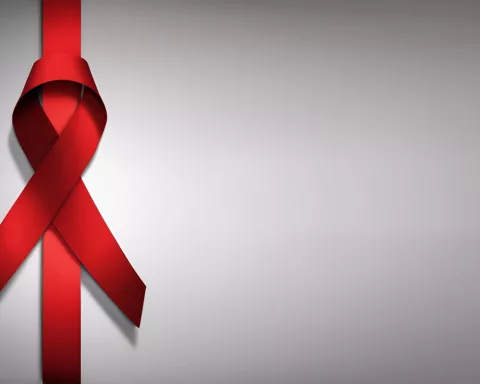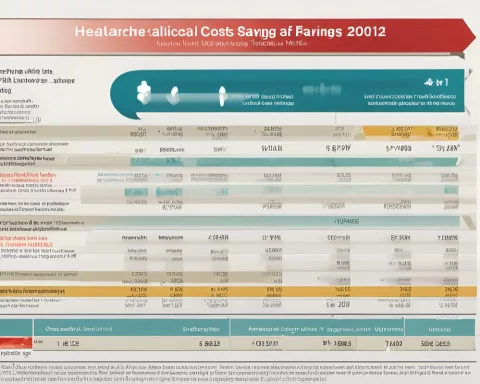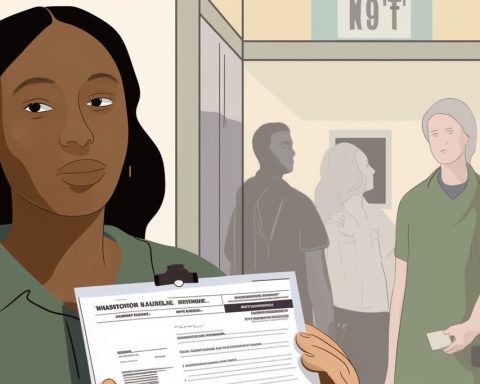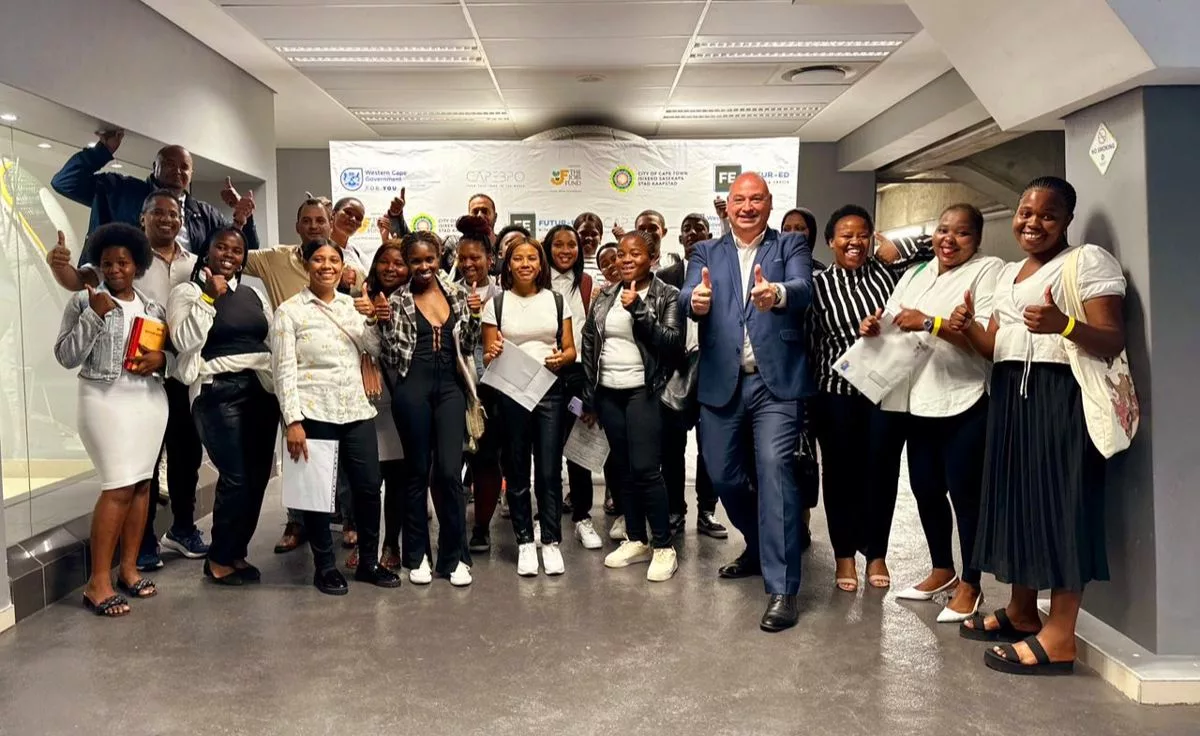Pregnancy Awareness Week is a week-long campaign aimed at raising awareness about the potential complications associated with teenage pregnancies and the importance of early antenatal care. The initiative focuses on reducing pregnancy-related complications and minimizing adverse outcomes for teenage mothers and their newborns. The Health Department is leading this initiative, with goals of having 47% of pregnant women register for Basic Antenatal Care before week 14 and 72% before week 20. The week includes events at various City clinics, with a focus on maintaining health and wellbeing during pregnancy and offering additional services and support for women who want to prevent pregnancy.
The Significance of Pregnancy Awareness Week for Teenage Mothers
Pregnancy Awareness Week aims to raise awareness about the potential complications associated with teenage pregnancies and the importance of early antenatal care. The initiative also focuses on reducing pregnancy-related complications and minimizing adverse outcomes for teenage mothers and their newborns. The Health Department is leading this initiative with the goal of having 47% of pregnant women register for Basic Antenatal Care before week 14 and 72% before week 20.
The week dedicated to raising awareness about pregnancy in our city places a special emphasis on teenagers. The initiative is not just about highlighting the potential complications associated with pregnancy, but also underlining the importance of these issues when the mother-to-be is a teenager. The Health Department is leading this initiative with the dual aim of reducing pregnancy-related complications and minimizing adverse outcomes for teenage mothers and their newborns.
Patricia Van der Ross, the Councillor and Mayoral Committee Member for Community Services and Health, has stressed the vital importance of early antenatal care. She encourages expecting teenage mothers to begin their healthcare visits in the first trimester. The Health Department has set ambitious goals in this regard, aiming for 47% of all pregnant women to register for Basic Antenatal Care (BANC) before week 14, and 72% before week 20.
The Impacts and Challenges of Teenage Pregnancies
The challenges faced by teenage pregnancies extend beyond the social and emotional aspects, becoming a significant economic burden. The potential disruption to the teenager’s education and future prospects is an issue that the Health Department is acutely cognizant of. This week of awareness is a proactive move to tackle this issue directly.
Multiple events planned at various City clinics during this week will cover a broad spectrum of topics. These include recognizing the warning signs related to pregnancy, promoting self-care through nutrition and hygiene, and managing existing medical conditions that pregnancy might exacerbate, such as hypertension, diabetes, infections, and anaemia.
Particular attention will be paid to the role of fathers, partners, and family in the journey of pregnancy. The mental health of expecting mothers will be addressed alongside physical wellbeing, with healthcare workers closely monitoring blood pressure, conducting urine tests, and tracking the weight of pregnant women.
Maintaining Health and Wellbeing During Pregnancy
A message that will consistently be underscored is the significance of discipline in maintaining a healthy diet and exercise routine, coupled with diligent personal hygiene and breast care. Expectant mothers are strongly advised against self-medicating, but are encouraged to continue with prescribed medication, including antiretroviral treatment.
The guidance provided also includes a strong advisory against smoking, drug use, and consumption of alcohol. Free drug and alcohol treatment is available at the City’s Matrix® clinics. Open dialogue with healthcare professionals is encouraged during these antenatal visits.
The value of a support network during pregnancy cannot be overstated. Pregnant women are encouraged to bring along a partner, relative, or friend to their antenatal visits. Early pregnancy care, ideally before the 14th week, is heavily promoted to ensure the health and safety of both mother and child.
Additional Services and Support from City Health
City Health not only focuses on pregnancy care but also offers a wide range of services for women who want to prevent pregnancy. A variety of contraceptive methods are available, along with counseling and testing for sexually transmitted infections. City clinics offer special sexual education sessions on weekdays.
In conclusion, Pregnancy Awareness Week is not just a week-long campaign but a powerful tool for change. It provides an opportunity to address the systemic issues surrounding teenage pregnancies and offers a beacon of hope for numerous young women navigating the complexities of teenage motherhood.
1. What is Pregnancy Awareness Week?
Pregnancy Awareness Week is a week-long campaign aimed at raising awareness about the potential complications associated with teenage pregnancies and the importance of early antenatal care. The initiative focuses on reducing pregnancy-related complications and minimizing adverse outcomes for teenage mothers and their newborns.
2. What are the goals of Pregnancy Awareness Week?
The Health Department is leading this initiative, with goals of having 47% of pregnant women register for Basic Antenatal Care before week 14 and 72% before week 20. The week includes events at various City clinics, with a focus on maintaining health and wellbeing during pregnancy and offering additional services and support for women who want to prevent pregnancy.
3. What challenges do teenage pregnancies face?
The challenges faced by teenage pregnancies extend beyond the social and emotional aspects, becoming a significant economic burden. The potential disruption to the teenager’s education and future prospects is an issue that the Health Department is acutely cognizant of.
4. What topics are covered during Pregnancy Awareness Week?
Multiple events planned at various City clinics during this week will cover a broad spectrum of topics. These include recognizing the warning signs related to pregnancy, promoting self-care through nutrition and hygiene, and managing existing medical conditions that pregnancy might exacerbate, such as hypertension, diabetes, infections, and anaemia.
5. What guidance is provided during Pregnancy Awareness Week?
The guidance provided includes maintaining a healthy diet and exercise routine, coupled with diligent personal hygiene and breast care. Expectant mothers are strongly advised against self-medicating, but are encouraged to continue with prescribed medication, including antiretroviral treatment. The value of a support network during pregnancy cannot be overstated.
6. What additional services and support does City Health offer?
City Health not only focuses on pregnancy care but also offers a wide range of services for women who want to prevent pregnancy. A variety of contraceptive methods are available, along with counseling and testing for sexually transmitted infections. City clinics offer special sexual education sessions on weekdays.












